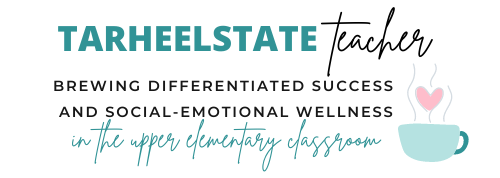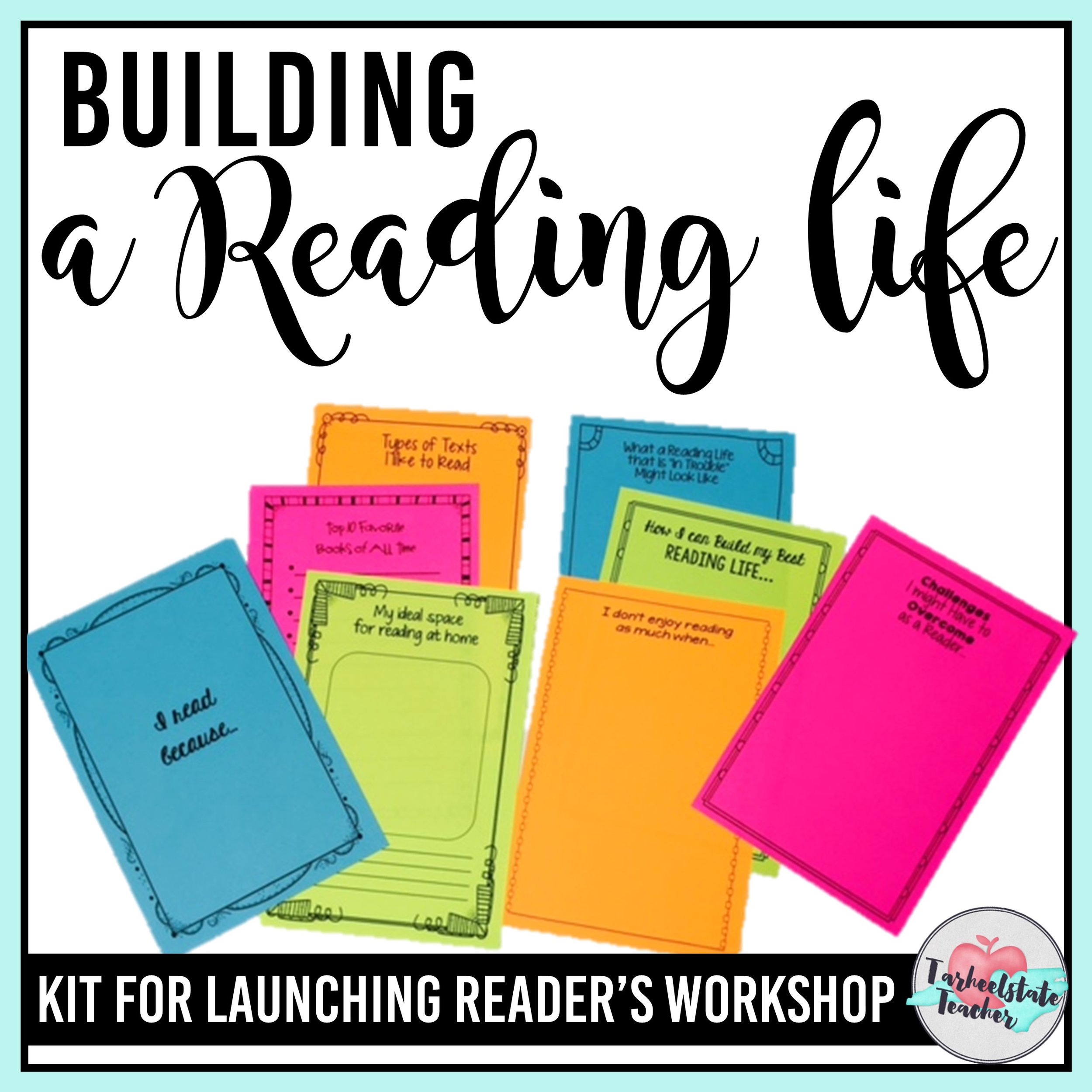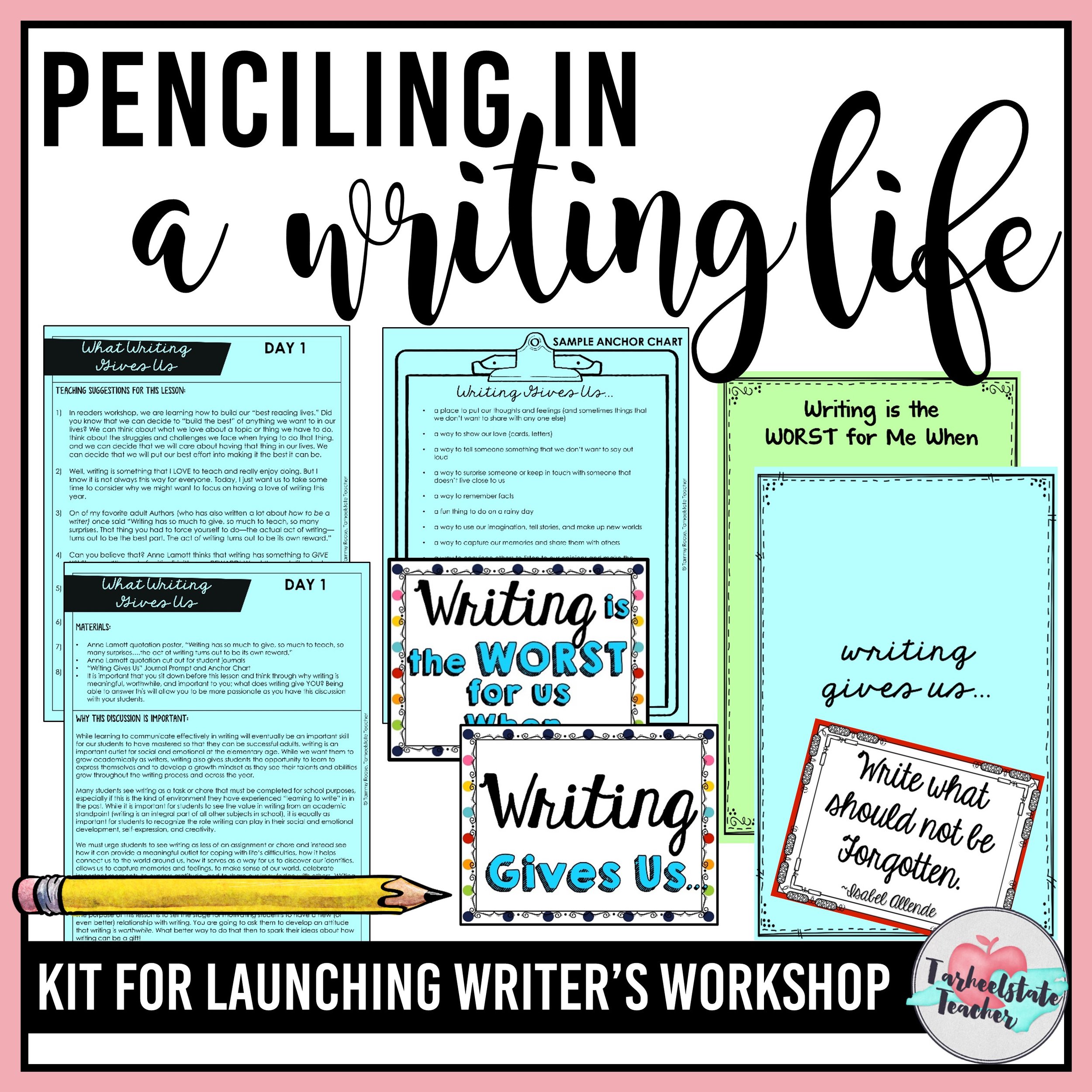Supporting Reluctant and Struggling Readers in Becoming Independent Readers
In today's Building a Reading Life post, I'm sharing some of my best approaches for helping "growing," reluctant, or struggling readers to build a reading life and fall in love with reading. This is not a post where I share how to teach specific reading strategies and skills, but some of the ways I make a “plan of attack” to target my struggling readers' independent reading habits and help guide them with their reading choices. These strategies work for not only your readers who have reading difficulties, but also for capable readers that just do not have high levels of engagement for independent reading.
In my last post about helping students develop a love of reading, I asked you to remember that children are impressionable and that your positive attitude towards reading will rub off on them. At the beginning of the year, I create such an energy towards reading, it is unbelievable that any child would not "jump on the reading train" with me. But, at times, I’ve also felt that I’ve just been luckily blessed with students who already have good attitudes towards reading.
Because of this, I was shocked this year during at least three report card conferences when my students' parents told me that their child did not really like to read the year before. Really? Those children have acted like wild readers in my classroom since week one. I had no clue, but this re-affirmed for me that the strategies I use to help students “Build a Reading Life” and the passion I demonstrate towards reading really does make a positive impact on my students!
While I'm proud of the influence I have over my students' attitudes, I still have students who do not “give in” to independent reading so easily. But, I’ve got a bag of tricks ready to change their lives as readers! Let’s go! We don’t have any time to waste in turning our students on to reading!
1) KNOW WHO YOUR STRUGGLING and RELUCTANT READERS ARE AS SOON AS POSSIBLE
I begin thinking about my "non-readers" before the upcoming year even starts. If you've not heard rumors of who the struggling readers are in the grade level below yours, be sure you ask when you get your class list. If you have access to end of the year assessment data, check it out.
Who's on the lower end of the data? Who might be on your V.I.R. {very important reader} list?
Then start asking questions.
Ask the child's previous classroom teacher why they think the child has been a struggling reader. Decoding? Comprehension? Making inferences? Attention? Stamina? Motivation?
By the way, I call an “unmotivated” reader a student who just hasn't been led to the right book yet, but you might hear that labeled by teachers as a motivation issue.
What was the child's favorite book that year? This probably means the book was on the child's "just right" reading level and they felt successful when reading it.
Can you start building a relationship with the student before the year begins?
When I'm lucky enough to already know who my struggling readers are before the next school year begins, I start priming them for being in my class. "Hey! How are you? You're about to be a 4th grader! I hope you are reading up a storm!" Just making the student feel like you care about them can give you so much power when trying to support their academic needs later on.
2) SIFT AND SORT YOUR READERS
During the first few weeks of school, I teach a unit called “Building a Reading Life.” These motivational reading lessons focus on getting to know my students as readers and guiding them to evaluate their reading attitudes and habits. I consider my “Building a Reading Life” unit as a big sifter—this is where I “shake out” the students who are either already in love with reading or are those who can be easily enchanted.
When you share your love of reading with students and encourage them to build meaningful reading lives, many of your students will follow your lead and amp up their independent reading right away—because you asked them to, because they like you, because you inspire them!
Bask in the glow of those happy readers humming along as they turn pages...
And then, WAKE UP!
Start zeroing in on those readers who are not quite where you want them to be. This is a time where you can identify which students are going to need more than a mini-lesson or two to get them reading on fire!
Who has difficulty choosing new books?
Who is choosing books that are above their success level?
Who's not really focused during independent reading time or always seems to forget their book at home?
Who's constantly abandoning their books?
I believe students who exhibit these behaviors are the first students to target during first quarter! (If it's later in the year right now and you still have those students, don't give up! It's never too late!)
ONCE YOU’VE IDENTIFIED YOUR RELUCTANT READERS, YOU WILL NEED A STRATEGY FOR GETTING APPROPRIATE BOOKS INTO THEIR HANDS!
My greatest struggle with helping readers who are reading well-below grade level and who may also have little-to-no self-esteem left for reading is how to support them while allowing them the autonomy that I believe all readers deserve.
How do I careful guide the student to good book choices, while trying my best not to say "Harry Potter is too hard for you! Get that book out of your hands!"? How do I allow them to keep their pride as they stumble from book to book? And how do I get the right level books in their hands so that they can feel good about reading?
In order to do all of this, I have to hold strong to what I know about reading growth—to become better readers, children have to read; to become better readers, children need to spend ample time reading at their independent reading level; to become confident readers, children have to read with understanding; to become confident readers, children have to finish books; to desire a reading life, children have to be part of a reading community!
3) CONSIDER WHAT BOOKS YOU WILL LEAD YOUR RELUCTANT READERS TO
As I prepare for readers who need more support and have a round-about idea of their reading levels, I start thinking about what books I'm going to lead each child to.
1) Classroom Library.
Have you ever really stepped back and taken a look at your classroom library? In the beginning of my career, I'd find myself saying "I've talked about just right books so much. So-and-so still does not know how to choose a book on her level."
Then one year I realized the problem...my books for "so and so" on a 2nd-3rd grade level were really hard to find and in slim-pickings. I'd have to search for at least 10 minutes to pull them all myself and only because I'm familiar with what's in my classroom library.
How did I expect a struggling reader to land their fingers on just-the-right-book?
I didn't turn my library upside down or even buy more lower level books, but I did start pointing kids in the right direction, helping them place specific books in their book bins, and attending library time with my kiddos to help get their hands on appropriate level books.
2) HIGH interest/LOW level books.
I've always liked the Stone Arch books by Capstone Publishers as a "go to" for students with word-reading issues. These books have silly titles like My Mom the Pirate, My Dad the Dragon, but they also have serious books like Kids Against Hunger.
The Stone Arch books come in all genres and have the reading level on the back. The books usually have some picture supports, but not so much that it seems like an easy book, and the chapters are usually fairly short (another PLUS that helps my readers gain momentum and feel successful!). My current school does not have a school library, but at my old school, I would pull as many of these books from the library as I could get my hands on, check the reading level on the back, and identify which books my growing readers had the most success with. I was usually able to get them to read a handful of these books to create successful experiences with reading and build reading confidence.
3) The Public Library and School Library.
Like many teachers do, I keep my students in mind while I'm at the bookstore or library.
I know we put up with a lot as teachers AND do a lot for kids, but this is one burden of teaching that I am not willing to shirk. I will go to the library and check out books for a student. I'm always on the lookout for just right books for specific students--and keep in mind that I get the most mileage out of a series if I can find one they like. It is super rewarding for me to say "I was thinking about you this weekend and thought you might LOVE this book I found." And, how does it affect a child's reading life to know you care enough to be thinking about them outside of school?
4) Book series by level.
A few years ago, I created a list of popular book series by level {from L-Z} so that I would have a quick reference of appropriate-level books that I might suggest or pull for students. Many of the lower level series touch on such a wide range of topics that you are sure to find ones in a series that your readers will like. Take the Pee Wee Scouts series for example. While a student may not care for mysteries, they may enjoy reading about holidays. The Pee Wee Scouts series has titles focused on Halloween, Valentines, and other holidays, so you can still use these books to your advantage. This list of series books by level is also great to use when it's time to bump a student up. I have a student who has spent all of first quarter reading The Magic Tree House series. He was reading this series towards the end of last year and I believe that it is no longer challenging him. I can use the series list to try to get him into a series that is just a step above MTH and lead him to other books that he can handle.
I have a strong passion for teaching readers. I could write about struggling readers forever. Along with my passion, I have a few beliefs that I must share with you in this post.
There are ways to help struggling readers WITHOUT telling them that a book is too hard for them.
(You sometimes have to walk on the eggshells, but YOU DO NOT have to say those words.) You may eventually find that after trying many strategies that you do have to tell some students that a book is not just right, but I try my best to teach each child what that means and how to figure it out for themselves before I say those words. I regularly CELEBRATE when a child starts a book that I know is not just right and mid-day lets me know that they abandoned it because it was not just right. YES! You might have to bring up how often books are being abandoned to a student's attention and then let them know that you would like to help them find a book that they can finish.
When I've worked with a student on choosing a just right book and felt I've had some success, sometimes the student returns to their old habits of choosing a book that is just too hard, spending a day with it, and then abandoning it. I notice these things. I pull the student to chat during independent reading time and say "I noticed you were reading The Series of Unfortunate Events yesterday and today you are reading something different. Tell me about your independent reading." When the child admits that the book was too hard, you say "I like how quickly you realized that you had chosen a book that was not a good fit. Let's make sure that what you have chosen will work for you." You can read together and get the student on the right track again.
I DO NOT BELIEVE IN TALKING ABOUT BOOKS WITH CHILDREN IN TERMS OF THEIR READING LEVELS.
I have to say this because I'm talking about reading levels today and I've shared a go-to list of series by levels, but I do not want to send the message that I tell a child that they need to read a Magic Treehouse because they read on an M, N, or O. I NEVER tell a child their reading level and my classroom library is not leveled.
I'd like to go into all of the public libraries and school libraries and rip the AR levels and Lexile levels right off the spines. Discussions about reading levels are meant to be had with adults--parents, support staff, teachers, and other stakeholders.
Children should not worry about being on an N or O or P. They should know whether or not they are reading books they can comprehend and read with accuracy and fluency. To put it bluntly, you can hardly guide a child to a series where all of the books in the series are the SAME level, so why have them stress out over whether or not a book is a 2.3 or a 3.2?
If a child is an above grade level reader, I don't need them tooting their horns about their reading level—I hate to burst their bubble, but even they have a lot of work to do when it comes to interpretation and thinking more deeply about their books. While Lucy Calkins and I disagree on this point and I'm sure many teachers have successfully leveled their classroom libraries, I'm just not willing to tell a child their level until my strategies for steering children to just right books don't work anymore.
Last, I'd like to ask you to have compassion for your struggling readers. It is most likely the case that your struggling readers have not had good experiences with reading, especially of an independent nature. Maybe it took them a while to catch on to letter sounds. Perhaps they are actually dealing with dyslexia or attention disorders that have made it hard for them to pay attention while reading. If students were struggling to get reading to click in the younger years, it is almost guaranteed that their peers have surpassed them in reading. They see their friends choosing thick books, breezing through the Harry Potters and The Lightning Thief series.
They pick up these books because they want to read them too or they want to mask that they cannot read those books with understanding. When we have this kind of reader in our classroom (and we all do), we need to believe that it is our job to be the teacher that makes a difference for that child.
Go into your year {or week} with a plan and commitment to getting your students reading on fire! Get your toolbox ready and convince those readers that they WANT to have the best reading life ever!
SHOP THE RESOURCES:









